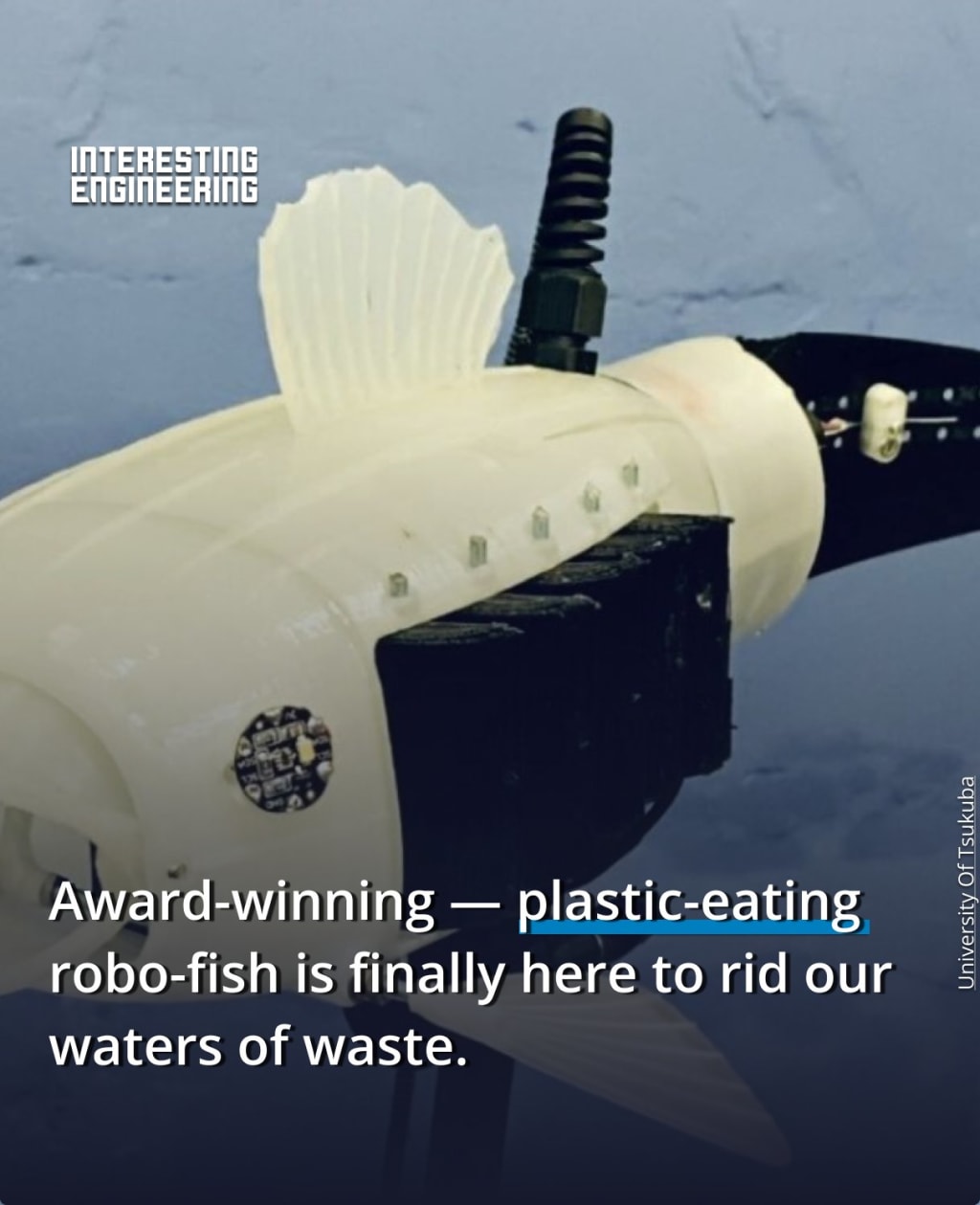
A robot fish that filters microplastics has been created after winning a robotics contest at the University of Surrey.
Researchers in robotics make the "robo-fish" concept a reality, according to a press release published by the University on Thursday.
"Water pollution, especially plastic pollution, is a huge problem. It’s not just the ocean which suffers but rivers, streams, lakes, and ponds. This makes it a problem without a one-size-fits-all solution," Eleanor Mackintosh, a chemistry undergrad student at the University of Surrey and the contest winner, told New Atlas.
"My design was focused on having a versatility in its function. What better creature to address the issues in water bodies than one that lives in them?”
The robot fish has gills that it uses to filter water as it swims and is about the size of a salmon.
“Fish are adapted to their environment, and gills are an incredible mechanism in nature that are specialized to filter oxygen into the bloodstream – so I adapted my design from that, with the purpose of creating a filter for microplastics instead," said Mackintosh.
Plastic-eating robot fish
The robot moves through the water by flapping its tail and holding its mouth open to catch water (and microplastics) in an internal cavity.
When the cavity inside the bot is full, it closes its mouth, opens its louver-like gill flaps, and raises the cavity's floor to force the water out through the flaps. The gill flaps are covered with a tiny mesh that lets water through but traps plastic debris.
The 50 cm (19.7 in) long Robo-fish can already capture particles as small as 2 mm in size. Along with an IMU (inertial measuring unit) for tracking its movements in the water, it has inbuilt sensors to assess turbidity and underwater light levels. And it illuminates at night as well.
The current prototype relies on the hardwired remote control.
However, future versions of the robo-fish might have the ability to catch far smaller particles. Additional potential upgrades may include a faster, more hydrodynamic body shape, a stronger tail, and the capacity to swim independently.
The competition
The University of Surrey's Natural Robots Contest, which was announced last May, encouraged members of the public to submit their concepts for animal- or plant-inspired robots that might carry out tasks that would benefit the globe.
Anyone with a bio-inspired robot proposal was welcomed to enter the competition, with the promise that the winning design would be developed into a functional prototype.
The plastic-collecting Robo-fish, created by Mackintosh, a chemistry undergrad and coincidentally a student at the University of Surrey, was chosen as the winning submission.
"We don't know where the vast majority of plastic dumped into our waterways ends up. We hope that this robo-fish and its future descendants are the first steps in the right direction to helping us to find and, eventually, control this plastic pollution problem," said Dr. Robert Siddall, Lecturer at the University of Surrey and the contest's creator.
The competition got submissions from all over the world, including robotic sea urchin and bear robots that guard forests.
The best idea was chosen by a panel of experts from different British and European research institutes, and it was then developed into a working prototype.
The technology would continue to be developed by engineers, and laypeople could do the same thing by viewing the device's open-source plans, according to the press release.
V DF DX X XX CX X XCCX C X CV DCV V C C C B JJ KH G JG G J






Comments
There are no comments for this story
Be the first to respond and start the conversation.